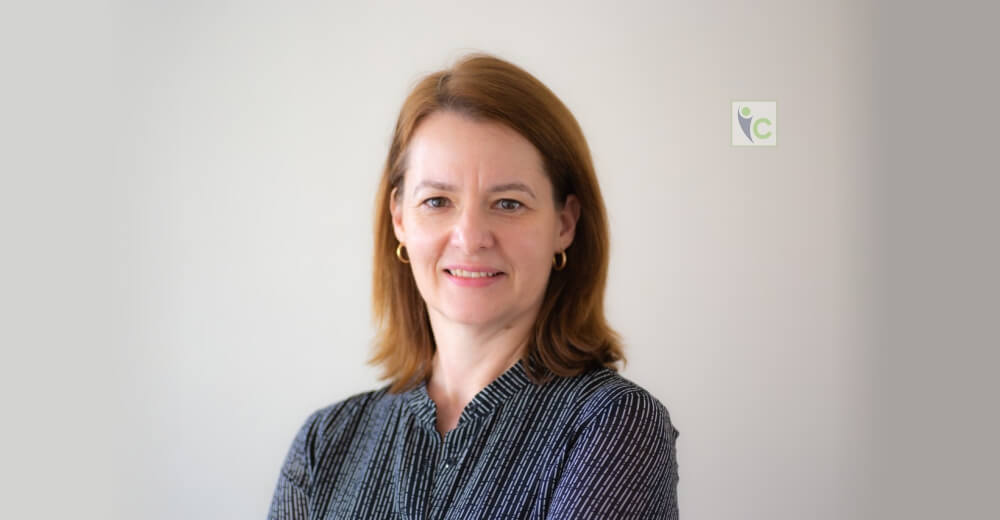For businesses to stay relevant in these times of change, adapting technology innovation is the only way. This is true for healthcare as it is for education as well as other service-based industries. The young generation – the digital natives – have grown up finding everything online, buying online, keeping friendships online, and working online. Imagine such a digital native looking after their children’s health by having to fill in paper-based forms, making appointments via phone calls and having to drive to doctors and pharmacies just to get a panadol. It’s completely alien to them.
The future of healthcare is digital. The current pandemic has further shown that the future of healthcare is hybrid. Telehealth services will help us do what we can online, and this includes seeing clinicians online via video calls. Face-to-face consultations will remain important, but only for procedures that cannot be done remotely and require actual touch. Businesses that embrace telehealth are thriving through the crisis, while those that continue working as before are struggling.
Foreseeing the change, Coviu, Australia’s leading video telehealth platform, was created to transform the healthcare industry. The entire team is passionate about breaking down the barrier of distance and enabling fair and equitable access to healthcare for everyone.
Digital Solutions
Coviu is built specifically for healthcare, and its digital workflows are tailored to replicate existing ‘brick and mortar’ processes of healthcare businesses. One can schedule appointments, take ‘walk-ins’ with the customizable waiting area, take patient payments, and manage multiple virtual clinics under one account with administrative capabilities. The platform is HIPAA compliant and complete with end-to-end and peer-to-peer encryption, keeping sensitive patient data safe.
Coviu is more than just a video call. The platform is equipped with in-built clinical tools, tailored to the practitioners’ speciality. The platform allows one to level up their telehealth game, by sharing resources, performing clinical assessments, using artificial intelligence diagnostic tools and more.
An Erudite Leader
Dr. Silvia Pfeiffer is the CEO & Co-Founder of Coviu Global. Silvia is a repeat entrepreneur, previously having founded a Web video analytics company and now Coviu, a telehealth turnkey solution for private practice. Silvia has more than 20 years of experience with Web video businesses having worked in technology innovation for Google, Mozilla, NICTA, and CSIRO. She co-edited the standards that made video a prime citizen of the Web and underpin not just the likes of Netflix and YouTube, but also her startup Coviu. Silvia has a PhD in computer science, a masters in business management, has published two books on HTML5 video and recently one for healthcare businesses to help them set up video consultations sustainably.
Coviu was first created within the Australian research organisation CSIRO as part of research into telehealth delivery platforms. Working closely with clinicians, Coviu found that existing consumer video calling software and corporate video conferencing applications were not sufficient for healthcare services. Not only do they not satisfy the stringent security and privacy requirements of healthcare businesses, but they miss important business functions such as collecting payments, making appointment bookings, gathering patient consent, and speciality specific add-ons. Silvia and her co-founder and CTO Nathan Oehlman, set about co-creating Coviu with the input of clinicians and healthcare businesses and spun the company out of Data61/CSIRO with the support of venture capital investment in May 2018.
The Pandemic Rush
When Medicare reimbursements for telehealth were announced on the 13th March in Australia, Coviu scaled from doing 400 video visits a day to 25,000 a day within 3 weeks. This meant that the company had to scale in three dimensions:
● Infrastructure: Coviu had to scale on technology. Being in AWS, Coviu was prepared for this and could make use of the horizontal and vertical scalability functionality of AWS.
● Team: With so many clinicians asking Coviu how they could change their business and adopt telehealth, it had to answer up to a thousand enquiries a day. So, scaling the team came next with quick hiring and even quicker training. “We hired a dozen people within two weeks and we brought up the number of staff from 7 pre-pandemic to 30 during the crisis. I’m still impressed by the quality of staff that we hired in such a short time – most are still with us and focus on other work now,” says Silvia.
● Business: Coviu also had to consider how it would scale as a business to survive through this crisis. The firm was fortunate that its business model was already in place, so it was taking payments from clinicians in a fully automated way. Everything was set up for scaling already and it didn’t run out of money.
Telehealth is here to stay and thrive
Telehealth is only at the beginning of its integration into healthcare across the world. “People are still focused on seeing their clinicians in person. For some types of consultations that is necessary. However, things are changing. More devices and different tools are being developed that will make it easier for these consultations to move online. I foresee that every person will have several small clinical devices at home to enable telehealth,” asserts Silvia.
She continues, “I foresee the creation of small home clinics. I believe that this is what COVID-19 has set us up for. Increasingly more consultations via video are held from home and they are starting to create a change in the way we provide care.”
An Expert’s advice for the Novice
The healthcare industry is not a simple industry to build a business in. In healthcare, there is a separation between the people that receive the care and those that pay for it. Most often, the payers are insurers or the government. So, the entrepreneur has to convince both that what he/she is providing is valuable.
Another challenge in healthcare is the regulatory aspects. These are much more rigorous in healthcare than in any other industry – and rightly so: after all, it’s about human lives. Regulatory systems in healthcare are typically limited to country borders. So, even if one finds a scalable business for one country in healthcare, it might not easily apply to another country. So, one needs to have a good understanding of the healthcare system and the potential business models in the different countries targeted. All of this in addition to being persistent because people are highly averse to change in healthcare.
The advantage of working in healthcare, however, is that you are making a direct impact on peoples’ lives. It is a highly rewarding area and very motivational for everyone involved.
Silvia’s final piece of advice is a bit more general: “don’t be too scared of making mistakes. Some of the best business models have come off the back of failure. When you know what doesn’t work, you’re one step closer to finding something that does, as long as you treat it as an opportunity to learn and grow.”
What Next for Coviu
Telehealth is only at the beginning of its integration into healthcare in Australia and across the world. Coviu has big plans to further humanise technology through telehealth. Key technology developments need to be servicing, not replacing humans. Artificial intelligence tools are important to relieve medical specialists of tedious triage work to allow them to focus on the most challenging cases that require human lateral thinking. New models of care will lead to more diversification of clinical jobs to allow nations to deal with the onslaught of chronic illnesses coming through aging populations. All of this can be integrated into virtual care and telehealth. This is where Coviu plans to make a difference.
In 10 years, Silvia expects Coviu to be the communication centre for healthcare businesses. Whether a clinician needs to talk to a patient, provide group therapy, needs to meet with a peer, or needs to join a company meeting – it will all be taking place in the same virtual clinic location that is provided through Coviu. “We will be a hub for enabling digitally transformed healthcare businesses,” concludes Silvia.










